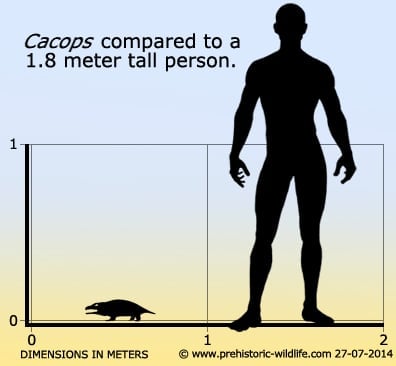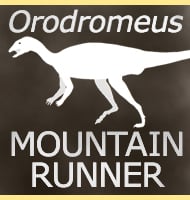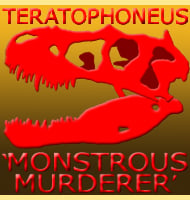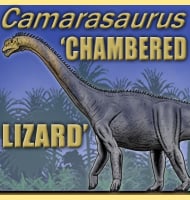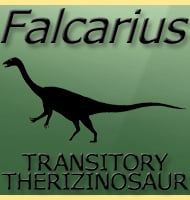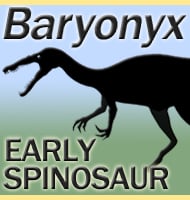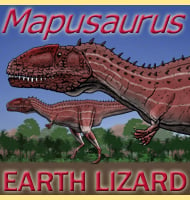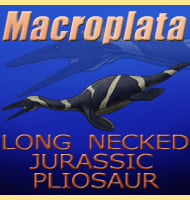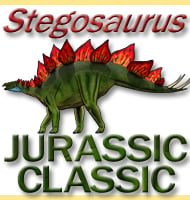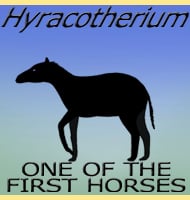In Depth
Cacops had many bony plates mainly concentrated along its back. These plates may have given it some protection from other terrestrial predators of the time. The large otic notch at the back of the skull suggests that Cacops had good hearing. Cacops itself was a predator, likely feeding upon invertebrates and smaller vertebrates.
Further Reading
– Cacops, Desmospondylus; new genera of Permian vertebrates. – Geological Society America Bulletin 21:249-284. – S. W. Williston – 1910. – Cacops (Amphibia, Labyrinthodontia) from the Fort Sill Locality, Lower Permian of Oklahoma. – Fieldiana: Geology. 37: 61–73. – John R. Bolt – 1977. – Biomechanics of the vertebrae and associated osteoderms of the Early Permian amphibian Cacops aspidephorus. – Journal of Zoology. 271 (4): 396–407. – D. Dilkes & L. E. Brown – 2007. – The armoured dissorophid Cacops from the Early Permian of Oklahoma and the exploitation of the terrestrial realm by amphibians. – Naturwissenschaften 96 (7): 789–796. – R. R. Reisz, R. R. Schoch & J. S. Anderson – 2009. – Comparison and biomechanical interpretations of the vertebrae and osteoderms of Cacops aspidephorus and Dissorophus multicinctus (Temnospondyli, Dissorophidae). – Journal of Vertebrate Paleontology. 29 (4): 1013–1021. – David W. Dilkes – 2009. – A new species of dissorophid (Cacops woehri) from the Lower Permian Dolese Quarry, near Richards Spur, Oklahoma. – Journal of Vertebrate Paleontology. 32 (1): 35–44. – Nadia B. Fr�bisch & Robert R. Reisz – 2012. – New specimen of Cacops woehri indicates differences in the ontogenetic trajectories among cacopine dissorophids. – Fossil Record. 18 (1): 73–80. – N. B. Fr�bisch, A. Brar & R. R. Reisz – 2015. – Cranial and postcranial anatomy of Cacops morrisi, a eucacopine dissorophid from the early Permian of Oklahoma. – Journal of Vertebrate Paleontology. 38 (2): e1433186. – Bryan M. Gee & Robert R. Reisz – 2018.
